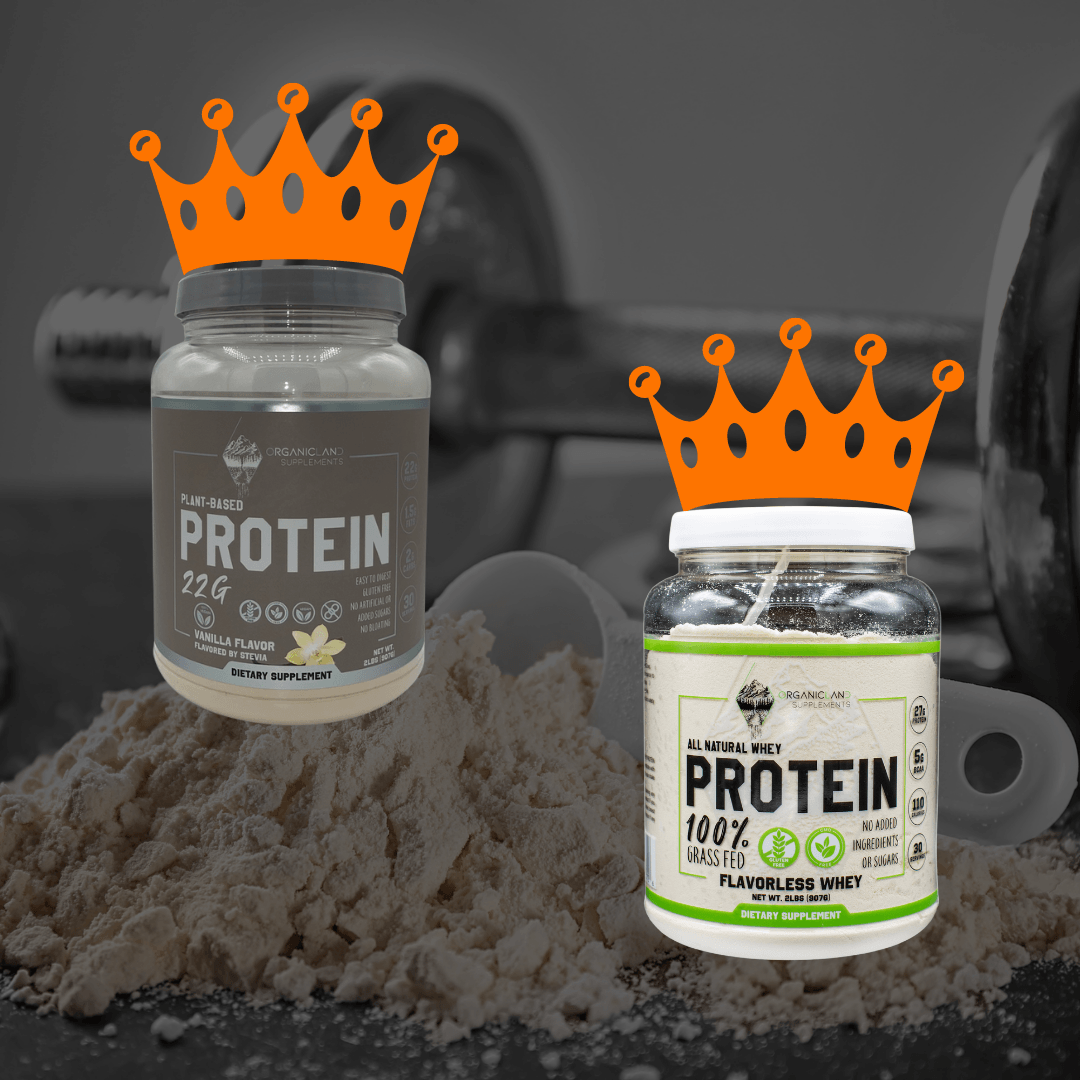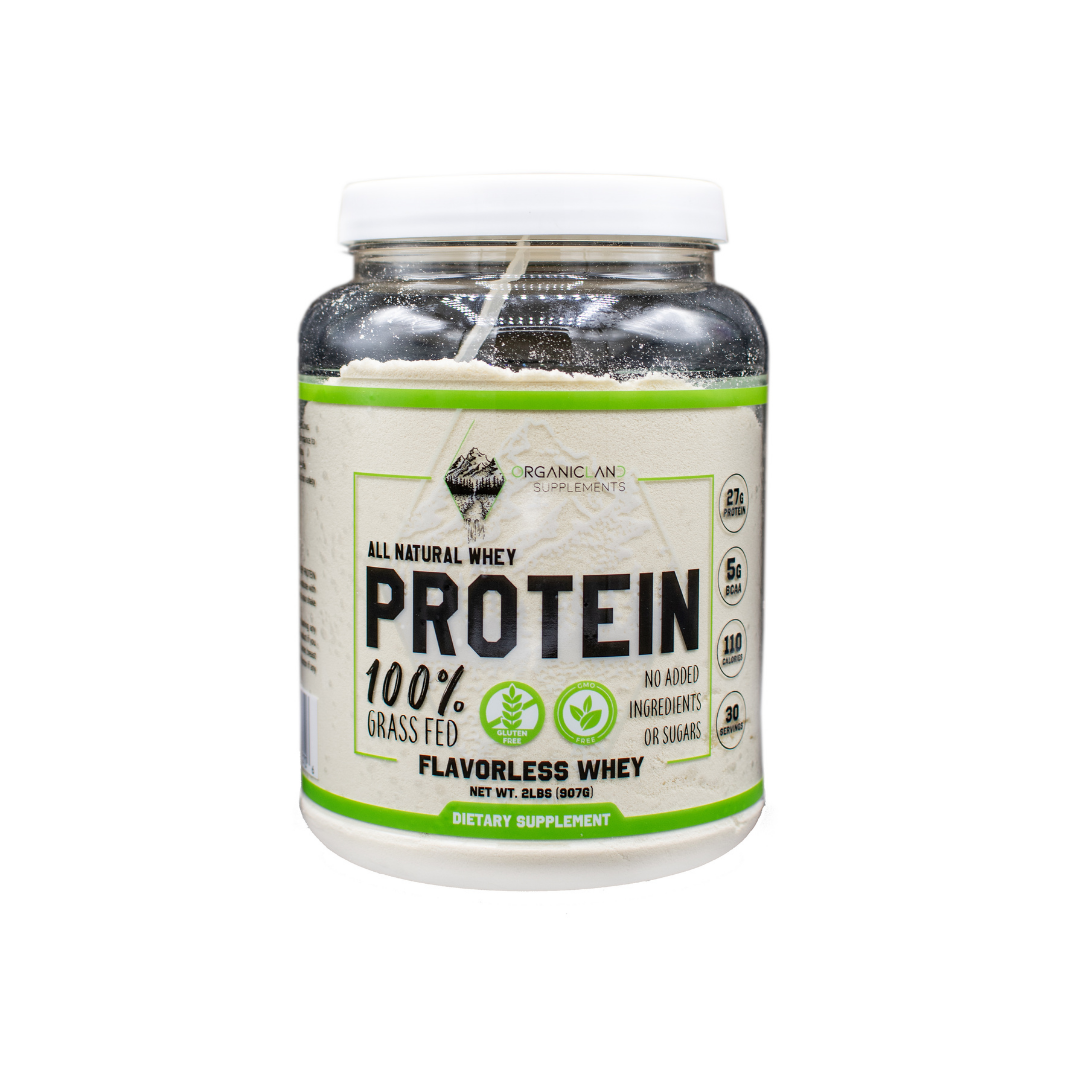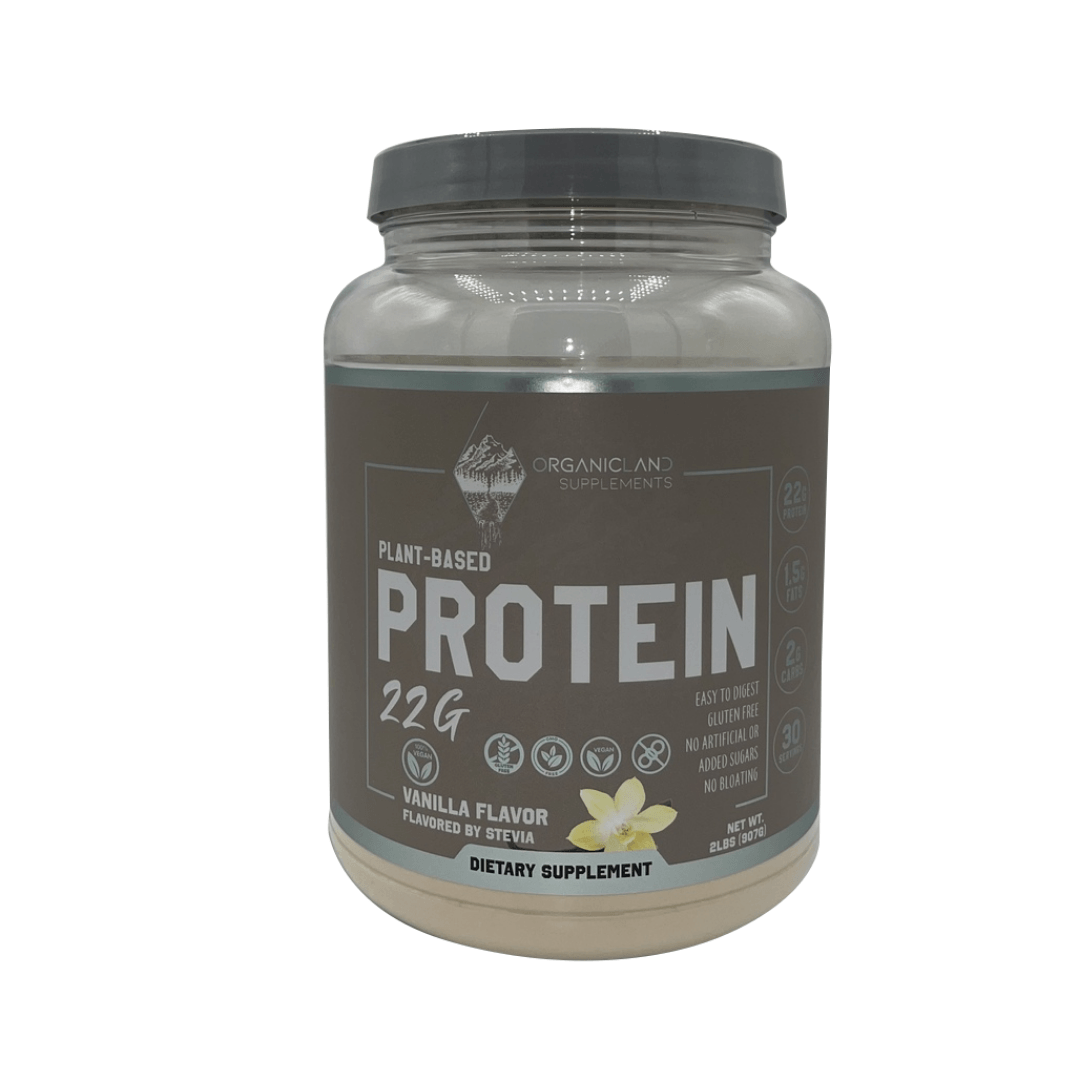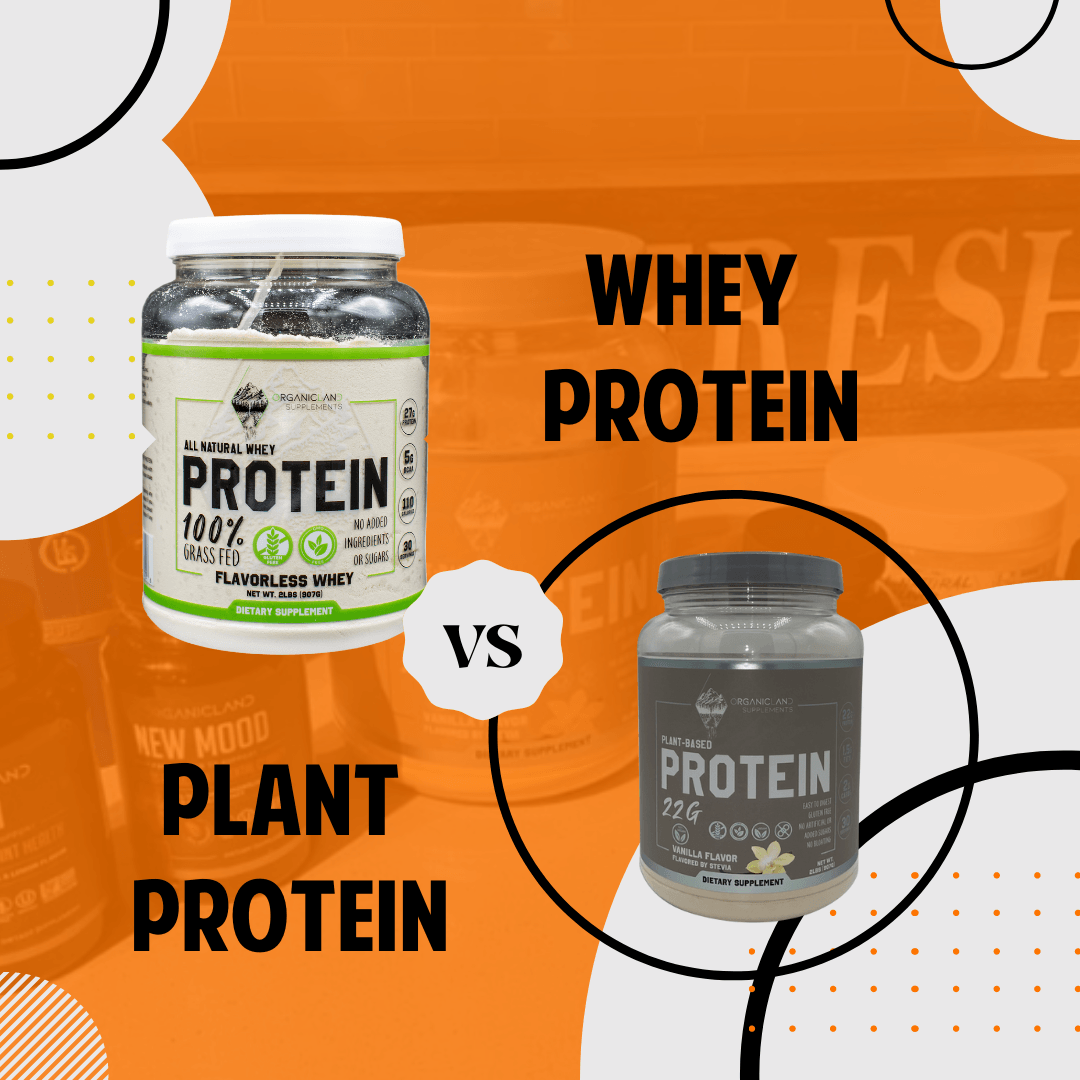WHEY PROTEIN VS PLANT PROTEIN
In the world of fitness and health, protein is king.
Deciding between whey protein and plant-based (also known as vegan protein) used to be more straightforward since plant protein was still leagues behind whey. But in recent years, plant protein has made significant gains on whey and now, the choice isn’t so black and white.
Naturally, if you have a dairy allergy or are vegan, then choosing a plant-based protein is logical since whey is a milk derivative. But if you can have whey, is there a benefit to choosing a plant protein instead?
Knowing what whey and plant-based protein supplements do for your body can help you decide if plant-based or whey is suitable for you and your goals.

Plant Protein Or Whey Protein?
In the past, when compared to whey, plant protein was often lumpy when mixed, had a notoriously bad taste and texture, and typically lacked other necessary components found in a whey protein powder such as essential amino acids. But not anymore.
Today, the most significant difference between whey and plant-based protein is the source of the protein. Whey is a milk-derived protein, while plant protein comes primarily from hemp, pea, and rice.
Both whey and plant-based contain around the same amount of protein per serving and are also comparable in terms of calories.
In regards to muscle gain and/or weight loss, a plant protein can yield just as successfully as whey.
So let’s look at each one individually.
Whey Protein
Whey protein is isolated from whey, a liquid byproduct of the cheesemaking process. The liquid is collected, and other components such as fat, carbohydrates, and water are removed so only the protein remains. It is from that point that its spray dried into a powder.
While whey may no longer be considered more effective than vegan protein as it once was, a significant benefit to whey is that it’s a complete protein. Our bodies require essential amino acids and can create many of them. But there are nine essential amino acids that our bodies cannot make and those must be supplemented. That’s why any food containing all the essential amino acids the body requires, such as whey protein, is considered a “complete protein.”
It’s also important to note that if weight loss is your goal, whey protein powders do have a higher satiety rating, meaning it makes you feel fuller for longer than plant proteins, so you end up eating fewer calories over time.

Shop our Whey Protein Here
Plant Protein
A single-source plant-based protein is not a complete protein. But today, most plant proteins are manufactured by mixing two plant-based protein sources, like rice and pea, thus creating a complete protein.
While studies on plant-based proteins are not comparable to whey protein studies, what has been done is promising. One study found that brown rice protein is just as adequate as whey protein in building muscle, gaining strength, and aiding in recovery.
Along with getting great results, plant-based protein is more natural and is often manageable for the body to digest compared to whey.
Today, the plant-based proteins on the market also come with additional added essential amino acids and even digestive enzymes to help your body process the protein properly. Plant proteins also tend to have fewer artificial sweeteners in them than whey proteins.

Shop Our Plant Protein Here
So Which Do You Choose?
It is essential to pay attention to the additional ingredients of any protein supplement. First, check that the protein is from a high-quality source, whether it be plant or whey.
Also, try to avoid unnecessary additives or artificial sweeteners, which can be counterproductive to your goals.
With that said, do you choose whey or plant-based protein?
That choice is really up to you!
As stated, both whey and plant proteins effectively support weight loss and exercise goals. It merely comes down to personal preference when deciding plant vs. whey protein.
If you have a whey protein that you like, there is no dire reason to switch to a plant-based and vice versa.
It’s just important to remember that any protein powder, whether plant-based or whey, is only as good as how you use it. Protein shakes should still be seen as a tool in helping reach your goals, along with regular exercise and a balanced, whole-food diet.

